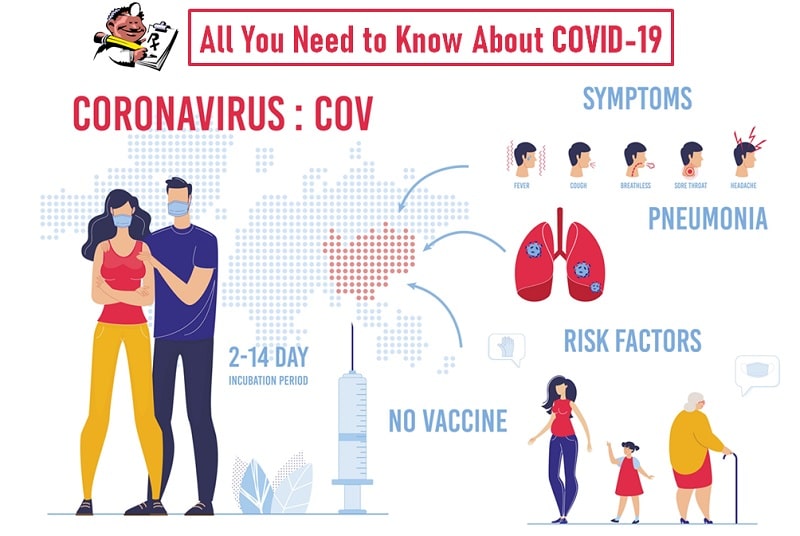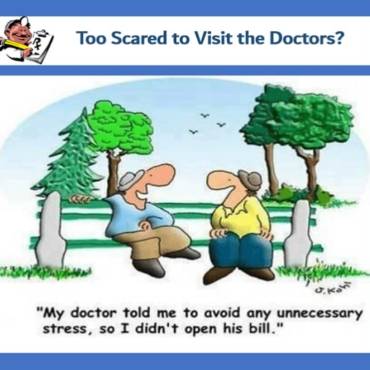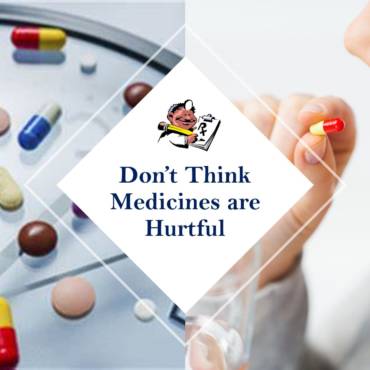All You Need to Know About the COVID-19 Coronavirus
All You Need to Know About the COVID-19 Coronavirus
What is COVID-19 that lead to 2019–20 coronavirus outbreak?
It is an infectious disease caused by SARS-CoV-2 (Severe acute respiratory syndrome coronavirus 2); a virus closely related to the SARS virus. It passes from one person to others via respiratory droplets produced from the airways, often during coughing or sneezing. Take a look at the following example that tells how it can spread from the infected person to a normal person.
Suppose a person has coronavirus infection and he sneezes or coughs. So, respiratory droplets are produced and if you are standing within the 6 feet or closer to that person then these droplets will land on your mouth or nose. Then you can inhale these in your lungs and can contract coronavirus.
People may have symptoms like fever, cough, and shortness of breath. Cases can progress to pneumonia. When symptoms become very severe, it leads to respiratory failure. Sometimes, the body starts failing and we call it septic shock or organ failure and the patient does need the ICU management (intensive care management). So far, there is no vaccine or specific antiviral treatment.
The incubation period of this coronavirus is 2-14 days. This is the duration when a person is exposed to the pathogen or the germ and then the time the person develops the symptoms. It is important to know about the incubation period because suppose if the incubation period is about 2 weeks and the person is not having any symptoms after 2 weeks, then it means patient is safe and is not going to get the infection.
People who reside or recently travelled to China or who has a close contact with the confirmed or suspected case of COVID-19, then you should really worry about it and get the screening done for COVID-19. At this time, all the top medical bodies have mentioned and accepted that the coronavirus spreads by person to person contact. But we have to understand that at the mortality, in medical terms, is 20% that means 2 people out of 100 people die, based on the statistics.
Some of the infections or epidemics in the past have a very high mortality. Smallpox mortality was 30%, like 30 out of 100 people who got smallpox, died. Very severe was the mortality by Ebola virus which was almost 90% that is 90 out of 100 people who got Ebola virus, died.
As of March 18, 2020, China, Hong Kong, Iran, Italy, Japan, Singapore, South Korea, and the United States are areas having evidence of community transmission of the COVID-19. The coronavirus has now become a pandemic. So, it’s a political challenge; financial challenge; and a scientific challenge for any country.
One thing we must understand that coronaviruses are actually very, very common. Most of the coronaviruses originate in animals and we see them in bats, camels and civets. Usually they are not transmitted to the mankind. But rarely or occasionally, coronavirus mutates from animal to human and then transmission occurs from human to human. There were 2 coronavirus pandemics occurred in the recent past.
One was SARS (Severe acute respiratory syndrome) happened in China in 2003. SARS source was also animal source. In 2003, WHO first time reported 300 cases in China which were very severe respiratory illness leading to five deaths in one month. The cases then spread to Hong Kong, Vietnam, Singapore, and Canada. Within 6 months, it spread all over the world causing about 8000 cases as a big picture, causing about 800 deaths and causing a case fatality rate of about 10%.
The second one was MERS (Middle east respiratory syndrome) and it was also caused by a coronavirus through camels. It started in Saudi Arabia in September 2012. As a big picture around 2500 cases were confirmed. Although 22 people died in Saudi Arabia, but what is important and interesting to know is that they mostly were men. We have to remember that in Saudi Arabia most of the women cover their mouth and nose and that probably helped decreasing their chance of being exposed to the virus.
What should we do for the prevention?
As far as preventing COVID-19 coronavirus is concerned:
1.It will be ideal that we have a vaccine, but it takes time to develop a vaccine.
2.It is very important in any infection transmitted by droplets or by our hands that we avoid touching our eyes and nose and mouth.
3.We also avoid close contact with the people like standing within 6 feet of the people who have coronavirus.
4.Every time we cough or sneeze, we should cover our mouth and nose with a tissue paper or with our hand, and then sanitize our hand and throw the tissue paper in the trash. It is an excellent practice.
5.In this situation, we should also clean and disinfect frequently our personal belongings and household items like cell phones, doorknobs, our wallets/purses, and laptop, etc.
We can do it with a sanitizer spray or sanitizing wipe.
We can keep our hands very clean in two ways. Either we wash them with soap and water at least for 20 seconds, especially after using the washroom > again, after eating > again, after blowing our nose > again, after coughing > again, after sneezing.
Or, if water is not available, then we should use alcohol-based sanitizer with at least 60% alcohol. We have isopropyl alcohol available easily on Amazon. When you spray it on, it dries-off very quickly and kills all the germs and viruses. We should keep it with us all the time.
“So, hand washing, maintaining distance from people who are coughing, and not touching one’s face with unwashed hands are recommended to prevent the disease. It is recommended to cover one’s nose and mouth with a bent elbow when coughing.”
All the top medical bodies actually do not recommend wearing a face mask as long as you are healthy to protect yourself from the coronavirus. To be honest, face mask is to be used by people who show symptoms of coronavirus and they should use face mask to prevent spread to the other people. But if you are a healthcare person or you are person who take care of a family member, then yes, you must wear the face mask.
So, What is the Treatment?
In most of the viral illnesses (all the coronaviruses lead to viral illnesses), the treatment is usually: Meticulous care; Excellent care; and Supportive care.
Antibiotics are not effective. They do not work for viruses. No antiviral agent was found to be effective in treating SARS and none so far for COVID-19.




14 Comments
Thanks for sharing this knowledge to everyone.
Thanks for the sanatizer knowledge. Its very strange how we make a sanatizer from alcohol
What about superbugs? I like sanitizing everything every five seconds, I would like to anyway, but disinfecting a surface or area isn’t easy or as simple as a wipe. That’s leaving potential superbugs lying in wait.
There’s “no evidence” that people gain immunity to COVID-19 after catching the disease, the World Health Organization says.
Now, several reports from South Korea and China show that people who have recovered from the coronavirus are suffering relapses.
Hope the vaccine should develop sooner
nice blog. I like this blog.
what is Malaria antigen test ?
Thanks for your feedback! will get back soon
who are superspreaders? and what is the rate of spreading means a single spreader how many people can be effect by him/her?
Team Add15Years thank you for your valuable feedback
Right blog at the right time. Its very important that people share right information on COVID.
We appreciate your feedback. Let us know how can we help you with your health concerns and queries.
I am seeing nowadays that people are thinking of corona virus not as a disease but a death. But after reading this blog this is clear covid is just disease, the meaning of covid isn’t death.
Nice blog with accurate information.
We are glad to receive your review. Now you can connect with on various social media platforms like Quora, YouTube, Add15Years blog, LinkedIn, Facebook, Instagram and more.
Add Comment